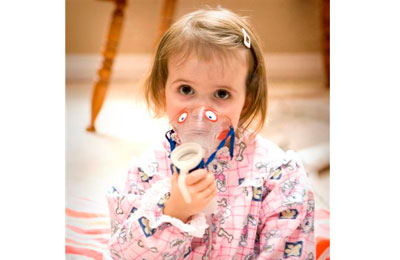
Experts to focus on cystic fibrosis in Mideast
Dubai, December 30, 2013
Healthcare experts will discuss cystic fibrosis in the Middle East at the Paediatrics Conference to be held in Dubai next month.
The conference, which is to be held during the Arab Health Exhibition and Congress, will run from January 27 to 30 at the Dubai International Convention and Exhibition Centre.
Saudi Arabia has the largest population affected by cystic fibrosis, a chronic genetic multisystem disease, in the Gulf, said a research.
Cystic fibrosis is inherited in an autosomal recessive pattern, which makes it more prevalent where consanguineous marriages are common, said the research from King Faisal Specialist Hospital and Research Centre.
“Cystic Fibrosis remains under-diagnosed in Saudi Arabia and the Middle East. Many patients are treated as recurrent chest infections, asthma-like disease, chronic diarrhea and failure to thrive,” said Dr Yazan Said, consultant, allergy/immunology and paediatric pulmonology, King Fahad Specialist Hospital, Dammam, who will speak at the conference.
“Some mutations cause mild and atypical disease that affects one or more organs, which makes it harder to be diagnosed. Low awareness and experience with this disease can explain some of the under or delayed diagnosis, but importantly the lack of diagnostic tools and experienced technicians in many healthcare facilities in our region can be a major cause for delayed or missed diagnosis,” he stated.
Newborn cystic fibrosis screening has been adopted by many western countries, with the objective of early diagnosis and intervention, and long term objective of preventing or delaying organ damage and prolonging life expectancy, said Dr Said.
“However, decision to include this approach in Saudi Arabia and the Middle East is hindered by proper prevalence information and economical cost effectiveness studies,” he said.
“Medications are numerous, expensive and time-consuming,” he added.
“Patients who develop end-organ damage are offered organ transplantation, but the yield is still suboptimal. Hence, efforts have been directed towards screening the disease, as well as early diagnosis and intervention, in order to slow or prevent organ damage and increase life expectancy.” - TradeArabia News Service







